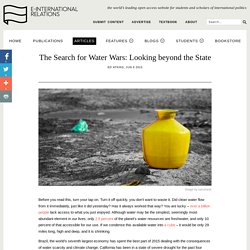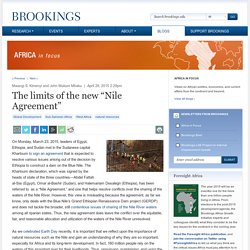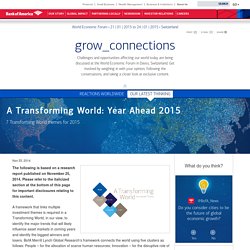

The Search for Water Wars: Looking beyond the State. Before you read this, turn your tap on.

Turn it off quickly, you don’t want to waste it. Did clean water flow from it immediately, just like it did yesterday? Has it always worked that way? You are lucky – over a billion people lack access to what you just enjoyed. Although water may be the simplest, seemingly most abundant element in our lives; only 2.5 percent of the planet’s water resources are freshwater, and only 10 percent of that accessible for our use. Brazil, the world’s seventh largest economy has spent the best part of 2015 dealing with the consequences of water scarcity and climate change; California has been in a state of severe drought for the past four years; and Iran and Yemen provide important examples of countries facing scarcity, as per capita water use continues to rise. This is not fear-mongering rhetoric – the resource’s scarcity will create competition, exacerbating pre-existing and creating new tensions.
A Problem of Cooperation In his seminal study, Aaron T. The limits of the new “Nile Agreement” On Monday, March 23, 2015, leaders of Egypt, Ethiopia, and Sudan met in the Sudanese capital Khartoum to sign an agreement that is expected to resolve various issues arising out of the decision by Ethiopia to construct a dam on the Blue Nile.

The Khartoum declaration, which was signed by the heads of state of the three countries—Abdel Fattah al-Sisi (Egypt), Omar al-Bashir (Sudan), and Halemariam Desalegn (Ethiopia), has been referred to as a “Nile Agreement,” and one that helps resolve conflicts over the sharing of the waters of the Nile River. However, this view is misleading because the agreement, as far we know, only deals with the Blue Nile’s Grand Ethiopian Renaissance Dam project (GERDP) and does not tackle the broader, still contentious issues of sharing of the Nile River waters among all riparian states. Thus, the new agreement does leave the conflict over the equitable, fair, and reasonable allocation and utilization of the waters of the Nile River unresolved. Further reading. Former Fatah Leader Is Mediating Nile River Dam Project.
Bank of America on Twitter: "By 2030, half the planet will likely be living in conditions of #water stress. A Transforming World: Year Ahead 2015. Important Disclosures BofA Merrill Lynch Research personnel (including the analyst(s) responsible for this report) receive compensation based upon, among other factors, the overall profitability of Bank of America Corporation, including profits derived from investment banking revenues.

Officers of MLPF&S or one or more of its affiliates (other than research analysts) may have a financial interest in securities of the issuer(s) or in related investments. BofA Merrill Lynch Global Research policies relating to conflicts of interest are described at From time to time research analysts conduct site visits of covered companies. BofA Merrill Lynch policies prohibit research analysts from accepting payment or reimbursement for travel expenses from the company for such visits. "BofA Merrill Lynch" includes Merrill Lynch, Pierce, Fenner & Smith Incorporated ("MLPF&S") and its affiliates. "BofA Merrill Lynch" and "Merrill Lynch" are each global brands for BofA Merrill Lynch Global Research. Club of Mozambique sur Twitter : "#Mozambique third worst country for access to #water #Milleniumgoals #UNICEF #UN.
Club of Mozambique Mobile. Assignments.